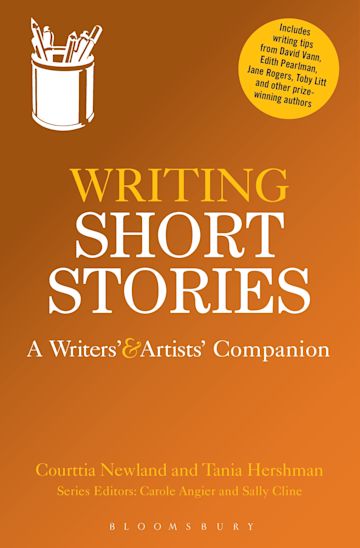In this extract from Writing Short Stories, author Jenn Ashworth discusses the importance of brevity.

A short story is a sliver of light between a pair of half-drawn curtains. It is a laser heading for an eyeball. Or it is a torch flashing wildly around a darkened auditorium. It is a fight seen out of a car window; a drive-by sort of thing. Or half of a telephone conversation, overheard on the train. It is something and nothing: presence and absence, detail and space. It may be brief but it is ultimately the most generous and respectful of literary forms. It won’t describe an intergenerational saga, nor examine its theme from a thousand angles. It might provide an epiphany, but is just as likely to trip the reader up by dramatizing a moment of realization that is not quite right; cracked, somehow, to let the light in, to let the unwritten parts of the tale shine through the silence.
Because it is such a generous form, a really great short story doesn’t lead us by the nose; it provides us with the essentials and sends us on a journey. Off you go, it says, make of this what you will, and while we are looking to be moved we are left alone to move ourselves. We travel light, with only a handful of possessions to take with us. Everything we need to know about Katherine Mansfield’s Miss Brill comes to us in the narrow gap in time and space between her worse-for-wear fur and her unbought slice of honey-cake. Shirley Jackson’s ‘The Lottery’ terrifies us with Bobby Martin’s pocket full of stones, Donald Barthelme surprises and discomfits us with a single ‘new gerbil’ in ‘The School’. Readers of short stories can be trusted: they don’t need much.
Short stories are uncanny: they contain ghosts. They haunt us because of what they require from us, but they ask us to haunt them too, making ourselves uncomfortably at home in a strange place by filling in their spaces and scribbling round the margins with our own anxieties and wonderings. There’s nothing as frightening as the monster you’re seduced into inventing for yourself, after all. With no room for exposition or repetition, the horror of possession, of sexual betrayal or perhaps something else, is communicated to us perfectly in Emma Unsworth’s story ‘In’ merely by the sound of a clanging gate. We are maddened by it. Alison Moore’s short story ‘When the Door Closed, It Was Dark’ is puzzling: the violent and erotic undertones only hinted at, or perhaps provided by us. In Nabokov’s ‘Symbols and Signs’ the horror and sadness take place in another room, in a hospital on the other side of town. All we are presented with are two elderly parents eating fish, looking at photograph albums, regarding an undelivered birthday present and waiting for the phone to ring.
A few pieces of advice for short fiction writers. Don’t tell everything. Construct a story that gifts the reader with the apparatus they need to do the work themselves. Particularize like mad and let your reader generalize, if she wants to. Use objects carefully. There’s no formula for fiction. But here’s one anyway: a short story = language + silence + a reader.
Jenn Ashworth was born in Preston and studied at Cambridge and Manchester. Her novels include A Kind of Intimacy, The Friday Gospels and Fell. She was elected a Fellow of the Royal Society of Literature in 2018. In 2019 she published Notes Made While Falling, a memoir told in a series of essays. Her latest novel is Ghosted: A Love Story. She is a Professor of Writing at Lancaster University.
Comments